Chickenpox:
Chickenpox is a highly transmitted disease caused by the virus known as varicella-zoster virus (VZV). It can result itchy, blister-like rash. The rash first appears on the face, chest, and back, and then spreads over the whole body, causing between 250 and 500 restless blisters.

Symptoms of chickenpox :
-
Fever
-
Loss of appetite
-
Headache
-
Tiredness
-
A general feeling of being unwell
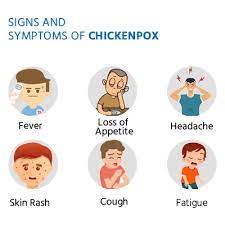
Precautions in chickenpox :
Although usually a light illness, sometimes the rash is more severe, and very rarely pneumonia occurs. Treatment one person in a group is affected by chickenpox in the past and therefore has immunity, which could make a suitable nurse. If all of the members have had chickenpox in the past then there is no need to isolate the patient.
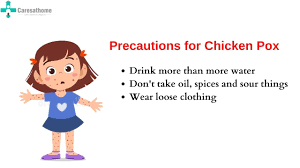
Stages of Chickenpox:
All three stages of chickenpox usually referred to the way the rash looks like.
-
The red and bumpy rash is stage one.
-
Stage two is the fluid-filled blistered rash.
-
The third stage is usually defined as when the blisters dried up and scab over.
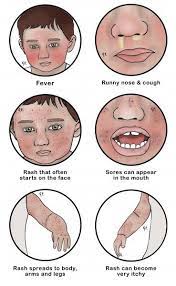
Chickenpox results :
The itchy blister rash caused by chickenpox infection remains 10 to 21 days after exposure to the virus and normally lasts about five to 10 days. Other signs and symptoms, which sometimes appear one to two days before the rash, is Fever.
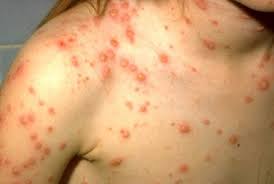
Symptoms:
The initial symptoms of chickenpox often include fever, fatigue, headache, and loss of appetite. A characteristic rash follows, consisting of red, itchy bumps that progress into fluid-filled blisters, eventually scabbing over within a week.
Transmission and Contagiousness: Chickenpox is primarily spread through respiratory droplets or direct contact with the rash of an infected individual. It is highly contagious, especially in the early stages before the rash appears.
Treatment Options: Treatment for chickenpox is primarily focused on managing symptoms. Over-the-counter medications like acetaminophen can help alleviate fever and discomfort. Calamine lotion or antihistamines may soothe itching. In severe cases or for individuals at higher risk of complications, antiviral medications might be prescribed.
Preventive Measures: The varicella vaccine is highly effective in preventing chickenpox. Immunization in childhood typically involves two doses, providing immunity against the virus. For unvaccinated individuals or those at risk, avoiding contact with infected individuals and maintaining good hygiene practices can help prevent the spread of the virus.
Complications and Risk Groups: While chickenpox is usually a mild illness in healthy children, it can pose serious risks for certain groups, such as newborns, pregnant women, adults, and individuals with weakened immune systems. Complications can include bacterial skin infections, pneumonia, encephalitis, and in rare cases, death.
Recovery and Immunity: Most individuals recover from chickenpox without complications. After recovery, the body develops immunity to the varicella-zoster virus, providing protection against future infections.
Varicella-Zoster Virus and Shingles: The varicella-zoster virus, after causing chickenpox, can remain dormant in the body's nerve cells. Later in life, it may reactivate as shingles, a painful rash affecting a specific area of the body.
Understanding the symptoms, treatment options, and preventive measures associated with chickenpox is crucial for effectively managing the illness and preventing its spread within communities.
(Article length may vary depending on further elaboration on specific aspects, statistics, vaccination recommendations, and insights into the virus's impact.)
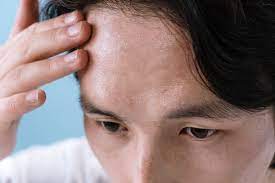
Varicella Vaccine (Varivax):
This vaccine is a live, attenuated (weakened) virus vaccine that is administered in two doses. It's typically given to children around 12 to 15 months old, with a second dose administered between the ages of 4 and 6 years old. It's also recommended for older children and adults who haven't been vaccinated and have not had chickenpox.
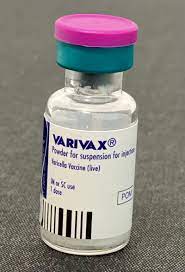
ProQuad (MMRV Vaccine):
This is a combination vaccine that protects against measles, mumps, rubella, and varicella. It contains the same varicella vaccine as Varivax and is administered in two doses.
These vaccines have shown high efficacy rates in preventing chickenpox. They not only protect against the initial infection but also contribute to reducing the severity of the disease in those who do contract it after vaccination.
Varicella vaccines are generally safe but may have mild side effects such as soreness at the injection site, fever, or a mild rash. Serious side effects are extremely rare.
The Centers for Disease Control and Prevention (CDC) and other health organizations recommend routine vaccination against chickenpox for children and certain high-risk groups who have not had the disease. Vaccination not only protects individuals but also helps prevent the spread of chickenpox within communities.
Always consult healthcare professionals or pediatricians for specific vaccination recommendations and schedules tailored to individual health needs.
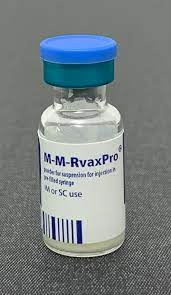

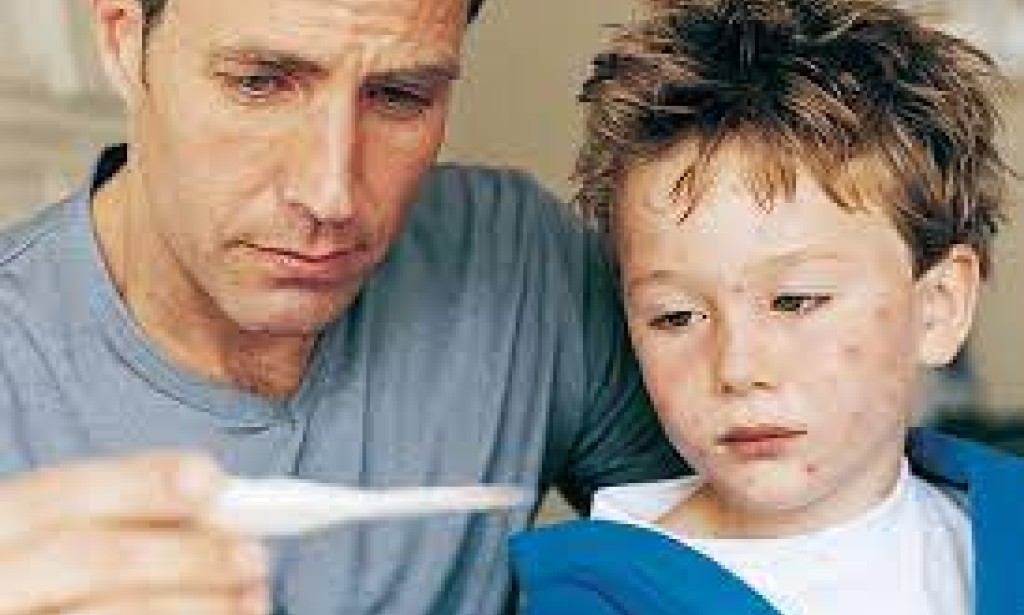
You must be logged in to post a comment.